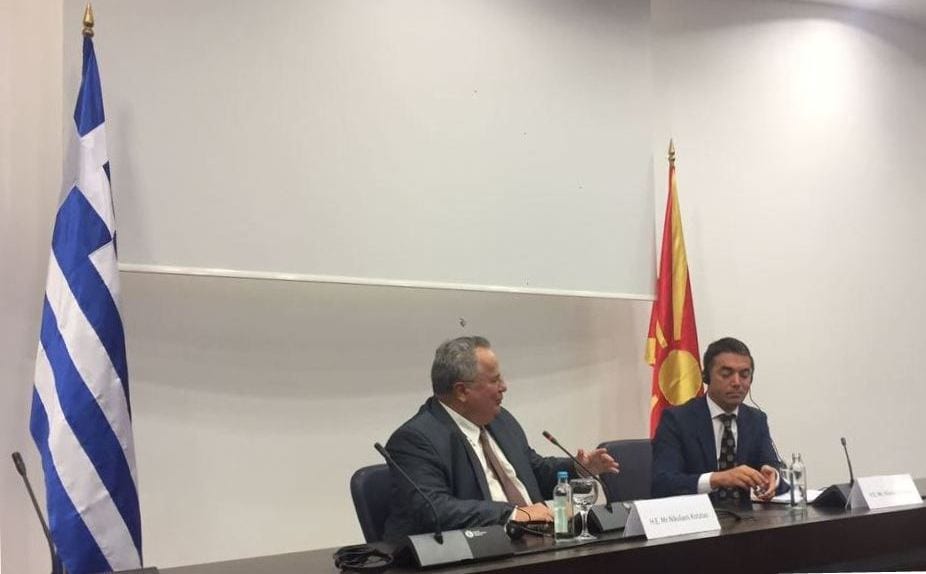By rferl.org
Macedonia called on Greece on August 31 to recognize the “new reality” that Skopje’s new government is committed to resolving remaining obstacles to joining the European Union and NATO.
After a meeting with Greek Foreign Minister Nokos Kotzias in Skopje, Macedonian Foreign Minister Nikola Dimitrov said, “We hope that Greece will recognize the new reality in Macedonia and our honest wish for friendship. We expect and we hope for help and support for European integration.”
The new government of Macedonian Prime Minister Zoran Zaev, which took over in May, has pledged to speed up the process of joining NATO and EU, including meeting EU conditions that it establish good relations with its neighbors.
Kotzias said that Athens would fully support Macedonia’s EU bid as soon as their longstanding dispute over the name Macedonia is resolved and Skopje meets other “preconditions” laid down by the EU.
Referring to Macedonia as “our dear neighbor in the north,” he joined Dimitrov in committing to improving relations.
Athens has long insisted that the name Macedonia should only be used for its own northern province, and it has vetoed Skopje’s attempts to join NATO and to start accession talks with the European Union over the dispute.
As a result, Athens, Brussels, and the United Nations all refer to the Balkan country as the Former Yugoslav Republic of Macedonia (FYROM).
After their second meeting since May, Dimitrov said the two ministers discussed practical matters involved with improving relations and easing Macedonia’s entry into the Western European community.
“We spoke about the process, how it will be going, the methods and modalities, but we also spoke about what exactly are the interests and worries on both sides,” he said.
Ahead of Kotzias’s one-day visit, a source from Macedonia’s Foreign Ministry was quoted as saying that the talks would focus on improving cooperation in the spheres of economy, transport, infrastructure, and energy.
The source told BIRN that any discussion on the name dispute will wait until after the local elections in Macedonia in October.
In Greece, local media cited unnamed sources in Greece’s Foreign Ministry as saying that Athens would use the visit to “feel the pulse” of the Macedonian government, which came to power at the end of May.
“I’m here to ask for your support,” Macedonian Foreign Minister Nikola Dimitrov told Kotzias during a visit to Athens in June. “I’m convinced that you have the leverage in your hands and this leverage can help toward closing the way for the one open issue.”
Kotzias said that Athens would support Macedonia’s integration “in every way, once the name issue has been resolved.”
“That is a prerequisite and I believe we must — and can — work toward a good compromise benefiting both sides,” he added.
The name issue came to the fore after Macedonia gained independence in the 1990s following the collapse of Yugoslavia.
Greece claims a historical right to the name because the heart of Alexander the Great’s ancient kingdom lies in its northern province of Macedonia.
Greece also says that Macedonia’s use of the name could imply territorial claims on parts of its territory.









